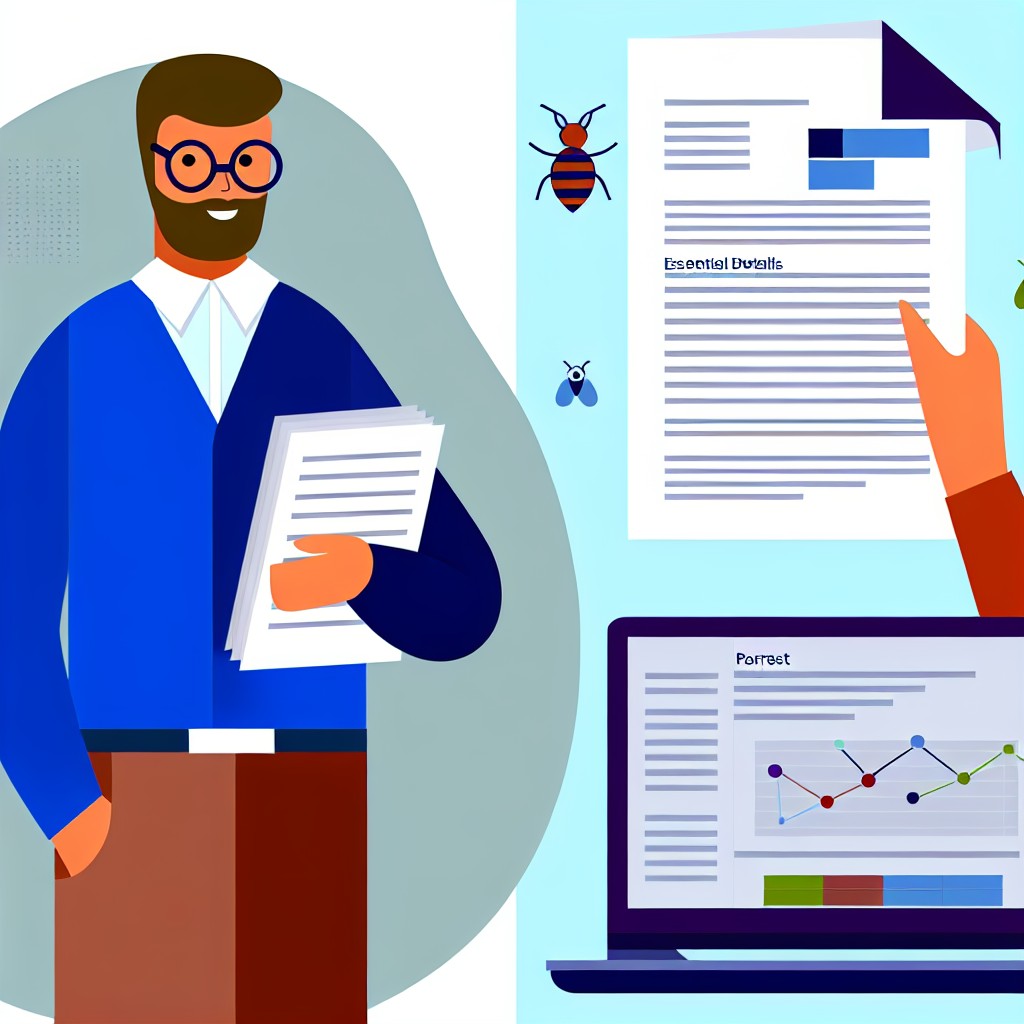Introduction
A Pest Control Advisor (PCA) is a professional who provides guidance on pest management.
Environmental factors must be considered to minimize negative impacts on ecosystems.
PCAs play a crucial role in promoting sustainable and environmentally-friendly pest control practices.
Definition of a Pest Control Advisor (PCA)
A PCA offers expertise in identifying pests, assessing infestations, and recommending control strategies.
They collaborate with growers to develop integrated pest management (IPM) plans.
IPM focuses on prevention, monitoring, and control with minimal impact on the environment.
Importance of Considering Environmental Factors in Pest Control
Chemical pesticides can harm beneficial insects, soil health, and water quality.
Inappropriate pesticide use can lead to resistance in pests, requiring stronger chemicals.
PCAs promote alternative methods such as biological controls, cultural practices, and organic solutions.
Role of a PCA in Promoting Environmentally-Friendly Pest Control Practices
PCAs educate growers on the importance of biodiversity in pest management.
They recommend using less toxic pesticides and adopting sustainable farming techniques.
PCAs monitor pest populations, assess risk, and implement eco-friendly solutions.
When it comes to pest control, synthetic pesticides have long been the go-to solution for many farmers and gardeners.
However, the use of these chemicals comes with significant environmental impacts that cannot be ignored.
In this blog post, we will delve into the negative effects of synthetic pesticides on the environment.
We will also explore the importance of reducing reliance on these chemicals for pest control.
Negative effects of synthetic pesticides on the environment
- Synthetic pesticides can contaminate soil and water sources, leading to harmful effects on ecosystems.
- These chemicals can kill non-target species, including beneficial insects like bees and butterflies.
- Residues from synthetic pesticides can bioaccumulate in the food chain, posing risks to human health.
- Overuse of synthetic pesticides can lead to pest resistance, requiring higher doses and more potent chemicals.
Examples of environmental damage caused by synthetic pesticides
- Loss of biodiversity due to the decline of pollinators and other beneficial species.
- Contamination of groundwater and surface water, affecting aquatic life and habitats.
- Soil degradation, erosion, and loss of beneficial microorganisms essential for plant health.
- Potential harm to wildlife through direct exposure or consumption of contaminated food sources.
Benefits of reducing reliance on synthetic pesticides for pest control
- Transitioning to sustainable pest management practices can help preserve biodiversity and ecosystems.
- Organic and biological alternatives are less harmful to the environment, humans, and non-target species.
- Reducing pesticide use can improve soil health, water quality, and overall ecosystem resilience.
- Integrated pest management approaches promote long-term pest control solutions without harming the environment.
The environmental impact of synthetic pesticides cannot be ignored when considering pest control strategies.
By shifting towards more sustainable and eco-friendly practices, we can protect our environment.
This shift will promote biodiversity and ensure a healthier future for all living organisms.
Explanation of Integrated Pest Management (IPM) Approach
Integrated Pest Management (IPM) is a holistic approach to managing pests.
Transform Your Career Today
Unlock a personalized career strategy that drives real results. Get tailored advice and a roadmap designed just for you.
Start NowThis method uses a combination of techniques to minimize pest populations.
It also aims to reduce risks to human health and the environment.
Advantages of Using IPM for Pest Control
- IPM emphasizes non-chemical methods such as biological controls, cultural practices, and physical barriers.
- This approach reduces reliance on chemical pesticides.
- By targeting specific pests and using preventative measures, IPM can reduce costly chemical treatments over time.
- IPM is environmentally friendly and promotes long-term pest control solutions.
- This approach protects beneficial insects and wildlife.
Ways IPM Minimizes Environmental Impact While Managing Pests
- IPM uses natural predators, parasites, and pathogens to control pests.
- Regular monitoring allows early detection and intervention before infestations worsen.
- Cultural practices like crop rotation, tillage, and mulching create conditions unfavorable for pests.
Benefits of Integrated Pest Management for Ecosystem and Human Health
Integrated Pest Management offers many benefits for pest control.
This approach reduces chemical usage and is cost-effective.
It promotes sustainability by using biological controls, monitoring, and habitat modification.
IPM manages pests effectively while minimizing environmental impact.
It supports the health of ecosystems and human populations alike.
You Might Also Like: Professional Associations for Rangeland Managers
Overview of Organic Pest Control Methods
Organic pest control methods involve using natural, non-toxic substances to manage and eliminate pests.
They do not harm the environment.
These methods focus on prevention and control through biological, cultural, and physical means.
Benefits of Using Organic Methods for Pest Control
Organic pest control methods do not introduce harmful chemicals into the environment.
This makes them safe for plants, animals, and humans.
Organic pest control techniques promote long-term balance and harmony in the ecosystem.
They rely on natural processes.
Using organic pest control methods helps avoid residues of toxic pesticides on fruits and vegetables.
This ensures healthier, chemical-free produce.
Organic pest control methods may require more effort initially.
However, they can help reduce reliance on expensive chemical pesticides over time.
Examples of Organic Pest Control Techniques That Are Environmentally-Friendly
- Introducing natural predators like ladybugs or nematodes controls pest populations without harming beneficial insects.
- Rotating crops each season disrupts pest cycles and reduces the risk of infestations.
- Planting certain crops together repels pests, attracts beneficial insects, and improves overall plant health.
- Neem oil is a natural pesticide derived from the neem tree that controls a wide range of pests safely.
- Using row covers, mulch, or traps physically prevents pests from reaching plants without chemicals.
Organic pest control methods offer a sustainable and environmentally-friendly approach to pest management.
Transform Your Career Today
Unlock a personalized career strategy that drives real results. Get tailored advice and a roadmap designed just for you.
Start NowYou can protect gardens, farms, and landscapes by adopting these techniques.
These methods help preserve biodiversity and promote healthier produce without compromising effectiveness.
Embracing organic pest control fosters a balanced and harmonious relationship with nature.
Learn More: Role of Environmental Scientists in Pest Management
How PCAs Help Clients Implement Environmentally-Friendly Pest Control Solutions
PCAs play a crucial role in guiding clients towards sustainable and eco-friendly pest control methods.
They provide expertise and knowledge on environmentally responsible solutions.
PCAs analyze the specific pest issues clients are facing and suggest integrated pest management strategies.
These strategies focus on prevention and non-toxic methods.
They stay informed about the latest advancements in environmentally-friendly pest control products and techniques.
This allows PCAs to offer clients cutting-edge solutions.
PCAs work closely with clients to develop customized pest control plans.
These plans prioritize environmental impact and sustainability.
Through regular monitoring and evaluation, PCAs ensure the chosen pest control methods are effective.
They also minimize harm to the environment.
Importance of PCAs in Promoting Sustainable Pest Control Practices
PCAs act as ambassadors for sustainable pest control practices.
They advocate for the use of eco-friendly methods to protect the environment.
By promoting sustainable pest control practices, PCAs help raise awareness about reducing chemical exposure.
They also emphasize the importance of preserving ecosystems.
PCAs educate clients on the benefits of implementing sustainable pest control solutions.
Such benefits include long-term effectiveness and overall environmental health.
Transform Your Career Today
Unlock a personalized career strategy that drives real results. Get tailored advice and a roadmap designed just for you.
Start NowThrough their advocacy efforts, PCAs contribute to a shift towards a more sustainable approach to pest management.
They also provide guidance on how clients can reduce their ecological footprint.
This occurs through responsible pest control practices.
Collaboration Between PCAs and Clients to Find Environmentally-Responsible Solutions
PCAs work collaboratively with clients to understand their unique pest control needs.
They also consider clients’ environmental concerns.
By fostering open communication and partnership, PCAs and clients develop effective pest control strategies.
These strategies focus on sustainability.
PCAs listen to clients’ preferences and priorities carefully.
They take these into account when recommending environmentally-responsible solutions.
Through collaboration, PCAs help clients make informed decisions.
These decisions align with clients’ values and environmental goals.
PCAs empower clients to take an active role in implementing environmentally-friendly pest control.
Clients make a positive impact on the environment through these practices.
Discover More: How Quality Control Inspectors Ensure Food Quality

Case Studies of Environmentally-Friendly Pest Control
Examples of successful pest control solutions minimize environmental impact.
Implementing organic pest control uses natural predators and traps instead of chemical pesticides.
Utilizing pheromone traps disrupts mating patterns of pests without harming beneficial insects.
Introducing beneficial insects like ladybugs or nematodes controls pests naturally and sustainably.
- Implementing organic pest control using natural predators and traps instead of chemical pesticides.
- Utilizing pheromone traps to disrupt mating patterns of pests without harming beneficial insects.
- Introducing beneficial insects like ladybugs or nematodes to control pests naturally and sustainably.
PCAs played a key role in implementing these environmentally-friendly solutions.
PCAs conduct thorough assessments of pest problems to determine the most effective and eco-friendly solutions.
Transform Your Career Today
Unlock a personalized career strategy that drives real results. Get tailored advice and a roadmap designed just for you.
Start NowThey provide guidance on integrated pest management strategies that focus on prevention and non-toxic control methods.
PCAs work closely with farmers and homeowners to educate them on sustainable pest control practices.
- PCAs conduct thorough assessments of pest problems to determine the most effective and eco-friendly solutions.
- They provide guidance on integrated pest management strategies that focus on prevention and non-toxic control methods.
- PCAs work closely with farmers and homeowners to educate them on sustainable pest control practices.
Using sustainable pest control methods leads to several positive outcomes and benefits.
These methods reduce exposure to harmful chemicals for humans, pets, and wildlife.
They promote biodiversity by preserving natural ecosystems and beneficial organisms.
Sustainable pest control offers long-term effectiveness in controlling pests.
It also reduces the need for repeated chemical treatments.
- Reduced exposure to harmful chemicals for humans, pets, and wildlife.
- Promotion of biodiversity by preserving natural ecosystems and beneficial organisms.
- Long-term effectiveness in controlling pests and reducing the need for repeated chemical treatments.
Learn More: The Role of Biotechnology in Food Science
Challenges in Implementing Environmentally-Friendly Pest Control
Barriers to Adopting Environmentally-Friendly Pest Control Practices
Implementing environmentally-friendly pest control methods can be challenging.
One major barrier is the lack of awareness among pest control advisors (PCAs) and consumers.
Many PCAs are accustomed to traditional chemical-based methods and hesitate to switch to sustainable alternatives.
The cost associated with eco-friendly pest control practices is another barrier.
Eco-friendly products and methods can cost more than conventional pesticides.
This creates a financial challenge for both PCAs and consumers to adopt these solutions.
Additionally, the initial investment in training and infrastructure can deter some PCAs from switching.
Ways PCAs Can Address Challenges and Promote Sustainable Solutions
Despite these barriers, several strategies can help PCAs promote sustainable pest control solutions.
Education and training play a crucial role in overcoming the lack of awareness about eco-friendly practices.
PCAs can attend workshops, seminars, and conferences to learn the latest eco-friendly pest control methods.
Collaboration with industry partners and environmental science experts helps PCAs stay informed.
Networking with professionals and researchers provides valuable knowledge and resources for eco-friendly practices.
Transform Your Career Today
Unlock a personalized career strategy that drives real results. Get tailored advice and a roadmap designed just for you.
Start NowFurthermore, PCAs can leverage technology to promote sustainable pest control solutions.
Using digital tools and software streamlines recommending and implementing eco-friendly methods.
Digital platforms also offer real-time data and insights to assist PCAs in making informed decisions.
Importance of Overcoming Obstacles to Protect the Environment
PCAs must overcome obstacles to promote environmentally-friendly pest control practices.
Chemical pesticides and harmful methods can damage ecosystems, wildlife, and human health.
Adopting eco-friendly pest control helps minimize pest management’s negative environmental impact.
Promoting sustainable practices also preserves biodiversity and conserves natural resources.
Eco-friendly methods target pests while minimizing harm to beneficial insects, birds, and other wildlife.
By adopting these practices, PCAs support ecosystem health and balance.
Role of PCAs in Advancing Eco-Friendly Pest Control Practices
PCAs play a vital role in overcoming challenges and promoting sustainable pest control solutions.
By addressing barriers and educating themselves, PCAs can lead the way in eco-friendly pest management.
Collaboration with industry partners and leveraging technology further enables PCAs to protect the environment.
These efforts contribute to a more sustainable and environmentally-conscious approach to pest control.
It is crucial to emphasize the significance of environmental considerations in pest control.
Prioritizing sustainable and eco-friendly practices benefits both Pest Control Advisors (PCAs) and clients.
Such practices contribute to the preservation of our ecosystem.
Environmental Protection through Sustainable Pest Management
Environmental considerations play a vital role in protecting biodiversity.
They also help maintain water quality and overall ecosystem health.
Integrated Pest Management (IPM) emphasizes non-chemical methods.
This approach helps minimize environmental impact effectively.
Transform Your Career Today
Unlock a personalized career strategy that drives real results. Get tailored advice and a roadmap designed just for you.
Start NowPrioritizing Eco-Friendly Practices for Effective Pest Control
PCAs and clients should prioritize pest control methods that protect beneficial insects and wildlife.
Choosing eco-friendly solutions allows effective pest management while preserving nature.
Promoting Awareness of Environmentally Friendly Pest Control
All stakeholders must take action to promote environmentally friendly pest control solutions.
Implementing eco-friendly practices creates a healthier environment for future generations.




